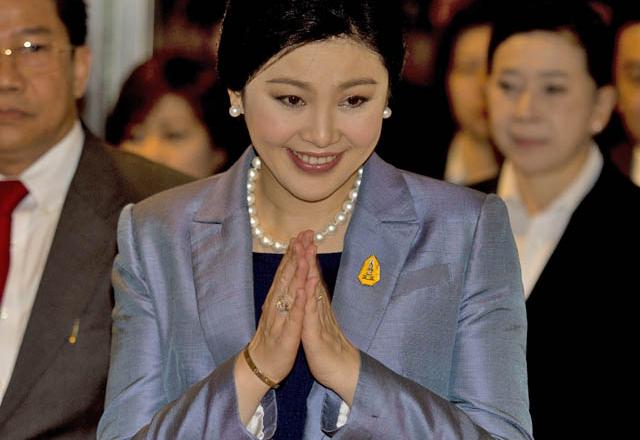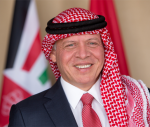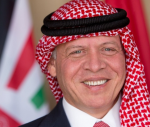BANGKOK — Thailand Tuesday declared a 60-day state of emergency in Bangkok and surrounding areas to tackle mass protests aimed at overthrowing the government, but ruled out using force to end the rallies.
The move follows weeks of mass demonstrations that have paralysed parts of the capital and sparked several bouts of deadly violence, including grenade attacks and shootings.
The last time a state of emergency was imposed in Bangkok, to deal with opposition protests against the previous government in 2010, dozens of people were killed in a bloody military crackdown.
Prime Minister Yingluck Shinawatra said there was no plan to give the army a leading role under the decree, which will come into force from Wednesday.
“That’s why we’re focusing on the police force, to avoid violence like in 2010,” she told reporters. “The authorities will start with negotiations.”
Yingluck is under intense pressure from demonstrators to step down after more than two months of street protests aimed at ousting her elected government and installing an unelected “people’s council”.
They accuse her of being a puppet for her brother Thaksin Shinawatra, a controversial tycoon-turned-politician who was ousted as premier in a military coup in 2006 and who lives in Dubai to avoid jail for a corruption conviction.
Yingluck’s supporters have accused the protesters of trying to provoke another coup.
It was not immediately clear how the government would implement the emergency decree, which enables authorities to impose a curfew, ban public gatherings of more than five people, detain suspects for 30 days without charge and censor media.
“We will not use force. We have no policy to disperse them (the protesters) and we haven’t announced a curfew yet,” said Labour Minister Chalerm Yubamrung, who will oversee its implementation.
Yingluck has called an election for February 2 but the main opposition party is boycotting the vote.
‘We will not stop’
The demonstrators have staged a self-styled “shutdown” of Bangkok since January 13, erecting roadblocks and rally stages at several main intersections, although their number has steadily fallen.
A defiant protest leader Suthep Thaugsuban — who faces an insurrection charge in connection with the protests, but has not been detained by police — vowed to keep up the rallies despite the state of emergency.
“We’ve been protesting for almost three months with no weapons and empty hands,” he said. “We will not stop.”
Dozens of people were wounded and one killed in grenade attacks by unknown assailants on opposition rallies on Friday and Sunday.
There have also been violent clashes between police and protesters storming state offices.
“You could see the emergency decree as a sign the government is a bit desperate in trying to control the violence of the last few days,” said Pavin Chachavalpongpun, associate professor at the Centre for Southeast Asian Studies at Japan’s Kyoto University.
He said it was unclear if protesters would respect the new rules.
“It could go either way, but if you believe that they want to incite violence to create the conditions for an intervention (by the military) then they are more likely to try to push things further and defy the emergency decree,” he said.
The kingdom has been periodically rocked by political bloodshed since Thaksin’s overthrow.
The latest protests were triggered by a failed amnesty bill that could have allowed him to return without going to prison.
Thaksin has strong electoral support in northern Thailand thanks to his policies to help the rural poor, but he is reviled by many southerners, middle class and members of the royalist establishment.
Mass rallies by his “Red Shirts” supporters in 2010 sparked street violence that ended in a bloody crackdown by soldiers firing live rounds and backed by armoured vehicles. More than 90 people were killed and nearly 1,900 injured.
Suthep, who was deputy premier at the time, faces a murder charge linked to those deaths, as does the then-prime minister Abhisit Vejjajiva.
The military, traditionally a staunch supporter of the anti-Thaksin establishment, has shown signs of reluctance to play a significant role in handling the current protests, saying it wants to remain neutral.
But the army chief has also refused to rule out another coup.

















